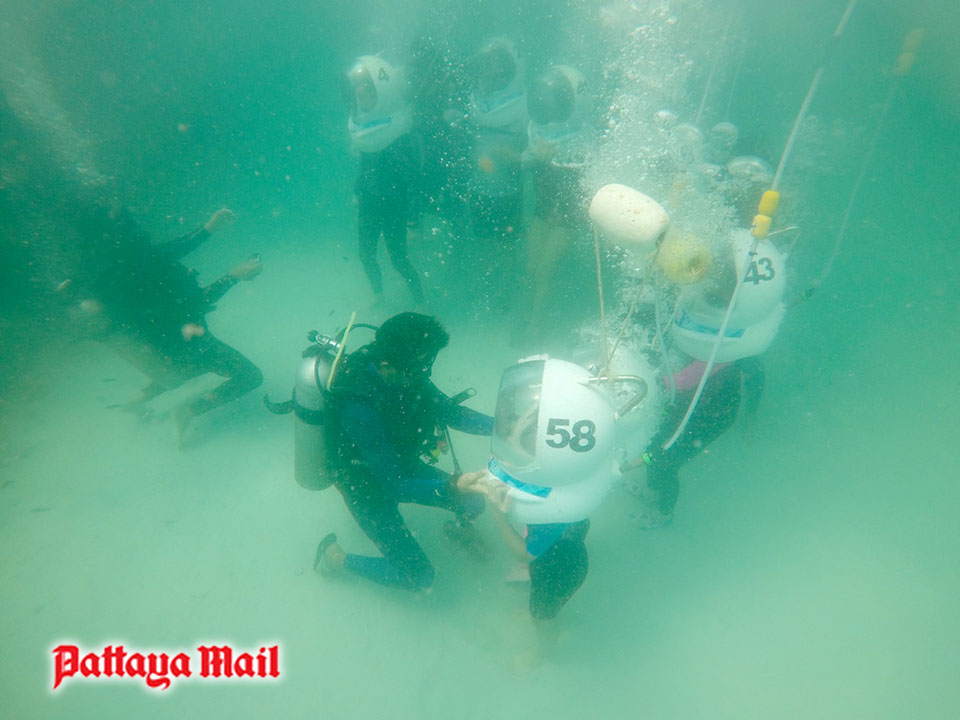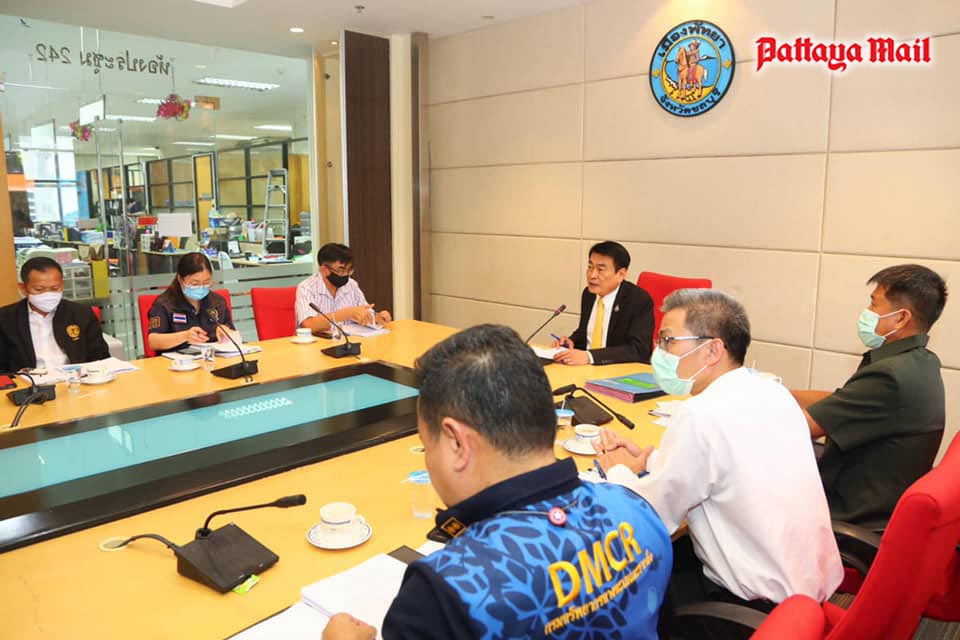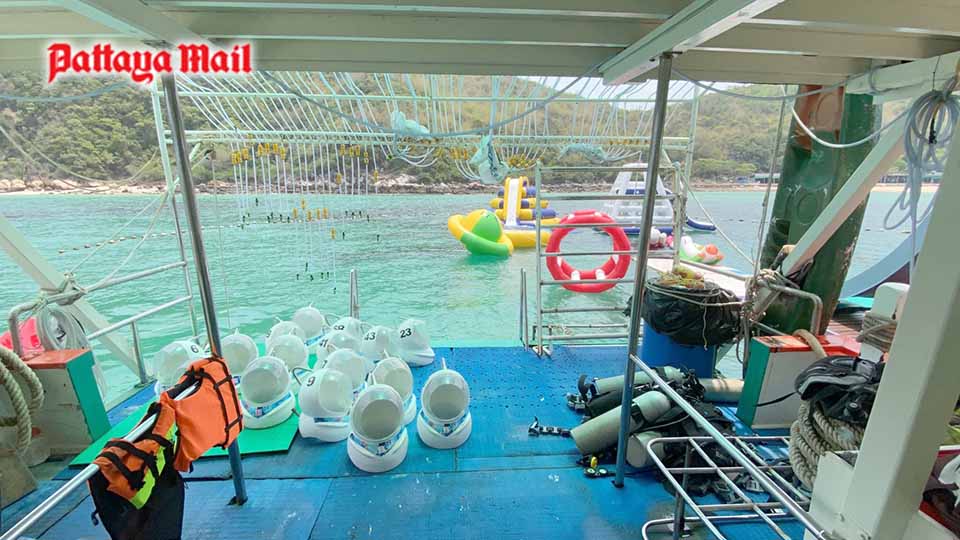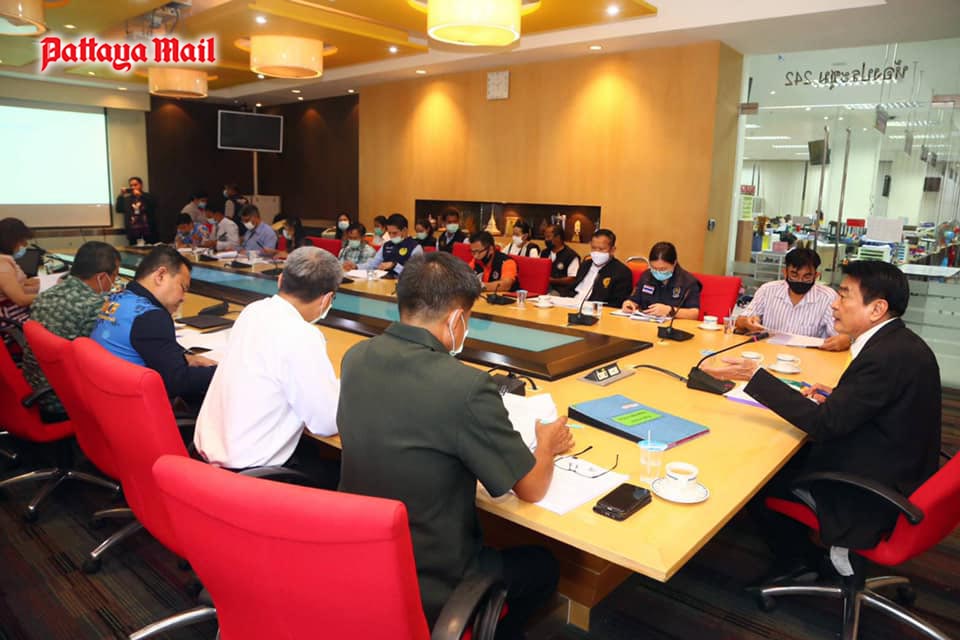
When a tourist died while “sea walking” in Pattaya Bay in 2013, city and marine-protection officials vowed to finally regulate the 20-year-old industry. Almost exactly eight years later, little has changed.
Deputy Mayor Ronakit Ekasingh chaired a hastily called meeting March 20 with officials from Koh Larn, the Pattaya Marine Department, and Chonburi Natural Resources and Environment Department to discuss the latest scandal involving untrained divers using surface-supplied air to stroll around the ocean bed.
Photos of tourist “sea walkers” moving delicate coral in the sea off Koh Larn went viral, prompting the Natural Resources and Environment Ministry to order snap inspections and a crackdown on the firms offering sea walking.

It’s not the first time.
On March 12, 2014, Ronakit – during his first stint as a Pattaya Deputy Mayor, chaired a similar meeting with operators of 12 sea-walker companies after an Indian tourist died. Increased scrutiny and regulatory reform were threatened against the business sector that had been operating in Pattaya without rules or licenses since the turn of the century.
Fast-forward almost seven years to the day and, with no apparent sense of or déjà vu, Ronakit assigned the Department of Marine and Coastal Resources to draft rules for a working team to study the problem.

Marine tourism exploiting coral reefs and the underwater ecosystem is an 86-billion-baht-a-year business in Thailand. But unlike scuba diving, sea walking has no governing body, no accreditations or industry oversight. And, unlike divers who must pass a four-day course to be licensed, anyone can put on an air helmet and go traipsing through coral reefs.
Local, regional and national officials have been aware of the risks posed by unregulated sea-walking businesses since 2002, when the Science and Technology Institute and Tourism Authority of Thailand met in Pattaya to say that sea-walker companies could operate but must coordinate with the standards set by the authorities.
The Pattaya Mail reported in 2002 that a year earlier authorities had introduced restrictions on sea-walking activities due to the dangers involved. Officials also sued some sea-walker companies that were operating without regard to safety standards, saying that some companies provided extremely low service standards. Operators used equipment that did not come up to specifications and were risking human lives. The matter was brought to the attention of the TAT.

The controversy flared again in 2006 when Bangkok scientists urged authorities to set up a working committee to oversee sea-walking businesses at Koh Larn following a report that they were killing coral and marine life. After TAT gave permission to the operators, no one bothered to monitor what the companies were doing underwater, a Kasetsart University professor claimed.
By the time the Indian tourist died in 2013, little had changed. Ronakit confirmed then that “sea-walker diving is still an activity that has not been approved by any agency. Hence, there has to be a safety inspection conducted, plus the Marine Department has to study the boat-registration guidelines.”





